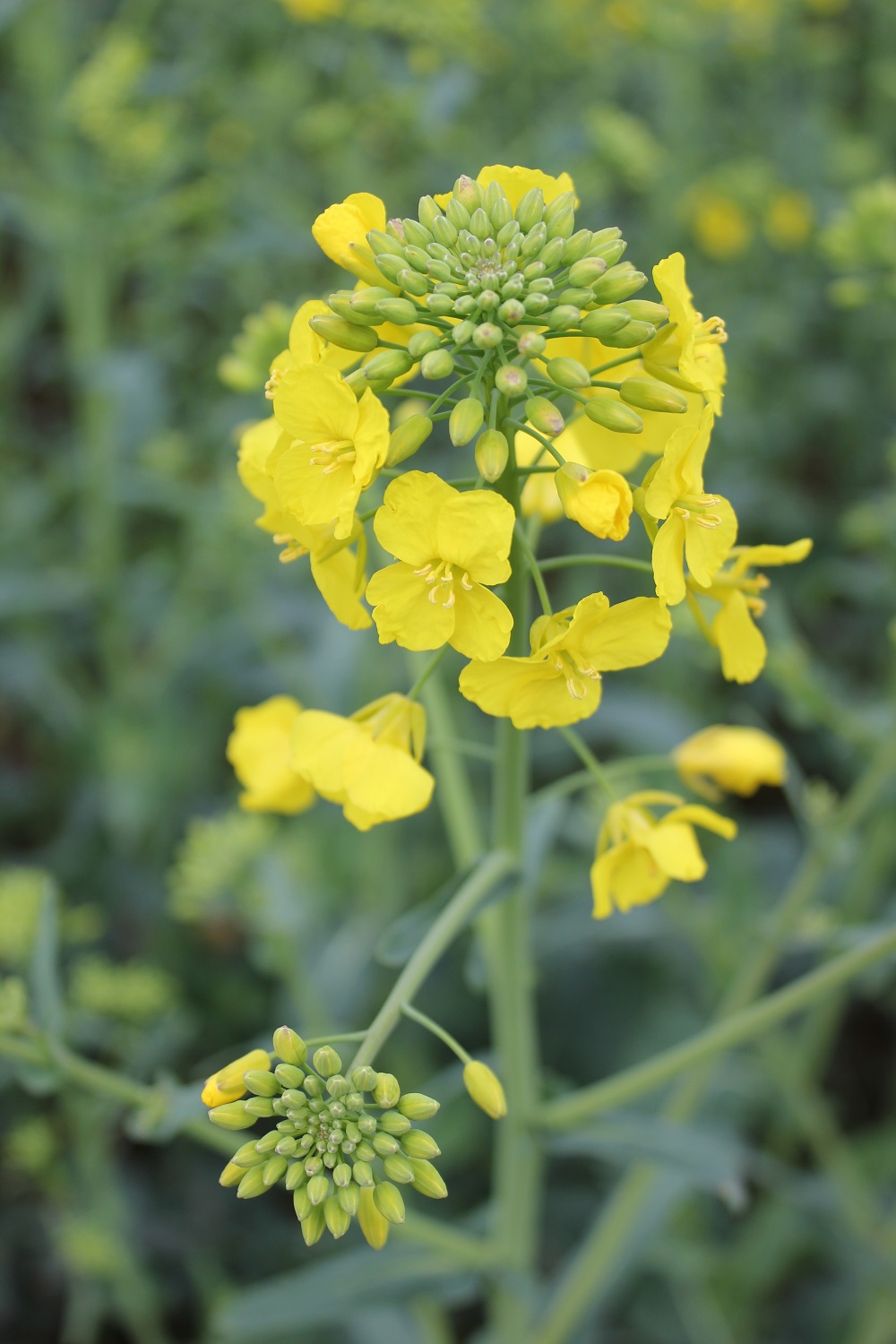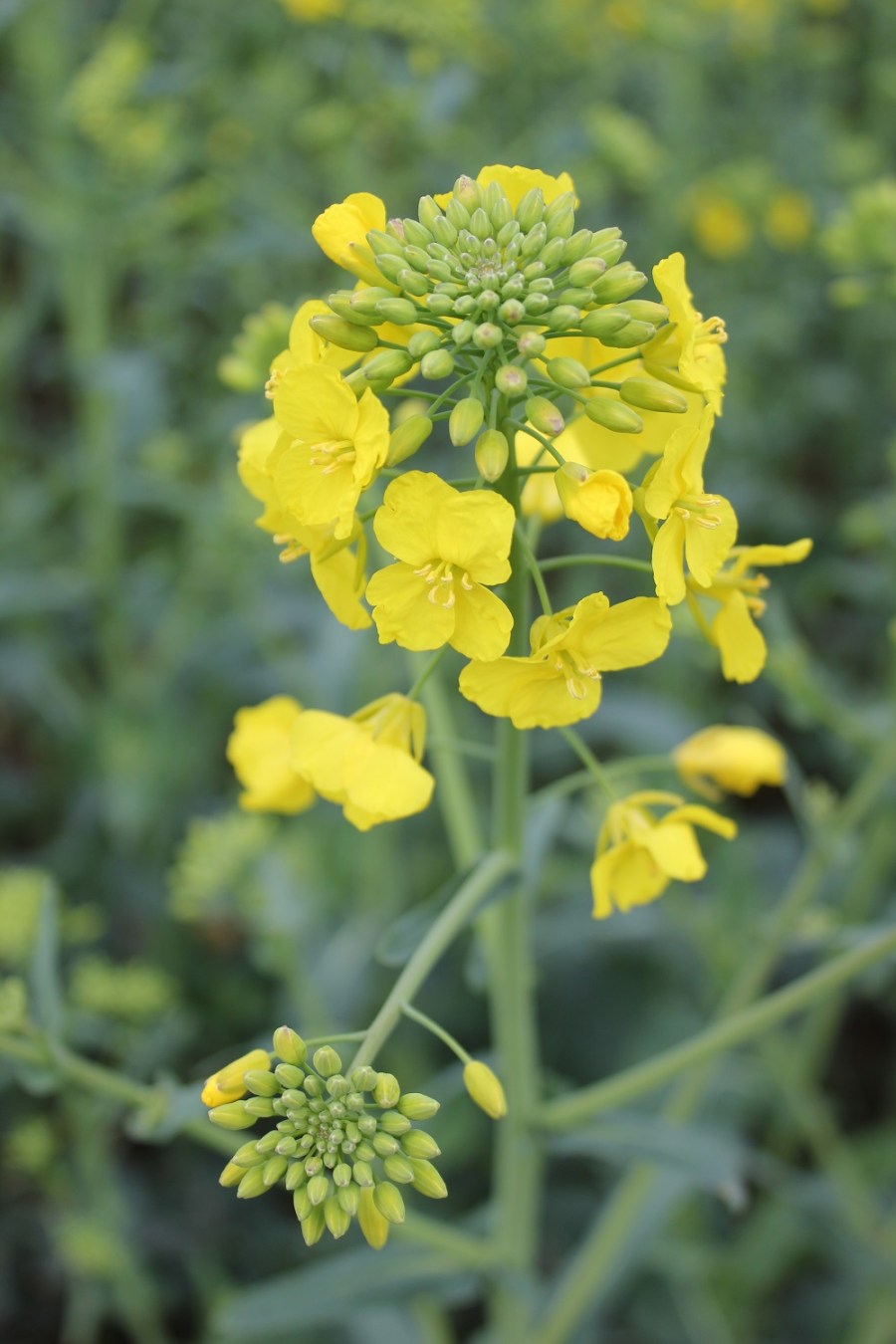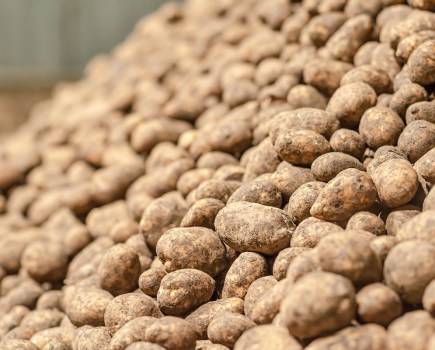 A fresh-faced candidate variety, DK Exception may not have proven itself in the UK yet, but its solid yield consistency, high phoma score and strong vigour is making it stand out.
A fresh-faced candidate variety, DK Exception may not have proven itself in the UK yet, but its solid yield consistency, high phoma score and strong vigour is making it stand out.
By Melanie Jenkins.
With a gross output of 104% of the control on the AHDB Cereals and Oilseeds Candidate list for 2016/17, DK Exception is set to draw some interest. The variety may be new to the UK, but it’s already well established on the Continent, where it’s been commercially available in a number of countries for several years, and has now become Dekalb’s biggest selling variety across Europe.
The hybrid oilseed rape newcomer offers a treated seed yield of 105 and an oil content of 44.6%, according to the Candidate RL. This comes with Dekalb’s pod shatter resistance, while its double phoma resistance lands the variety a score of 9 on the candidate list.
DK Exception has been a blockbuster seller in Europe.
A light leaf spot (LLS) score of 6 makes Exception a tidy variety, says Dekalb breeder Matthew Clarke. “It has a high yield potential and consistent performance, which it’s demonstrated in trials all over Europe, from Southern France to

DK Exception has a high yield potential and consistent performance, which it’s demonstrated in trials all over Europe, says Matthew Clarke.
Eastern Europe and further North. DK Exception has been a blockbuster seller in Europe.”
Based on its performance in National List trials and NIAB TAG members’ trials, Exception looks very promising, according to Simon Kightley at NIAB. “Its gross output is on par with the best recommended varieties and what it really brings to the party is excellent stem canker resistance. This is an opportunity to start cutting back on autumn fungicide inputs at a time when growers are increasingly conscious of low crop prices and margins.”
However, Matthew Phillips of GFP Agriculture stresses that it’s worth being aware that light leaf spot is becoming more prevalent across the UK and so growers making any variety choices need to keep an eye on disease scores.
DK Exception has made an immediate impression on Tim Eaton at Anglia Grain Services, which has been growing it in scaled field trials since Sept 2015. “I’ve been impressed with its establishment and of the 18 varieties we have in the trials it’s in the top two or three as far as establishment goes,” he says. Drilled on 8 Sept, it excelled in difficult growing conditions, he adds, and has since got off well in the spring.
Disease ratings
“It’s an all-round hybrid that has done everything it could have possibly done so far. Varieties with such good disease ratings are what farmers need, so the market prospects should be good. Farmers also need cheaper varieties to grow as rapeseed prices are so depressed at the moment.”
It’s relatively tall but has a stiff stem and will stand at that height, says Matthew Clarke. It also has moderate to early maturity, fitting into the mid-range portfolio. “It has a vigorous establishment in the autumn and in breeding trials has indicated consistently high yields. In the past two years of trials in the UK, Denmark and Sweden, DK Exception has been either the top or the second best variety,” he says.
DK Exception is well established in France and has shown an outstanding level of consistency from first registration to farm trials, according to Alexandra Cadet, the European technical specialist for Dekalb. “It’s a very flexible variety, is easy to grow and can suit poorer or heavier soil types.”
Vigorous establishment and resistance traits are the reason the variety is able to perform so well in any situation, she says. “It’s very impressive. We’ve lots of varieties but this one is producing consistent yields everywhere.”
So far, Dekalb hasn’t come across any variations based on region or soil type in trials. “It’s the first of our varieties that has performed well wherever we’ve had trials.”
It’s a variety that adapts to climatic and field conditions to give the best results possible, says Alexandra Cadet. “Growers can sleep well with the knowledge that even if their crop management isn’t perfect, this variety will perform as best as possible.”
In the north east of France, a good yield equates to 3.2-3.5t/ha, but DK Exception has been outperforming this and has averaged 3.8t/ha in trials against the trial mean of 3.5t/ha. “In the north of France, a high yield is 5.5-6t/ha and DK Exception is able to achieve yields this high as well. It does well whether in poor or very good conditions,” she adds.

DK Exception has shown an outstanding level of consistency in France and adapts to climatic and field conditions, says Alexandra Cadet.
Though it has vigorous establishment, Alexandra Cadet points out that the variety won’t have start stem elongation early so growers can safely drill it early. “There’s no risk of excessive growth and it’s good in terms of pest pressures. There can be quite a problem with flea beetle in France, but as a fast growing variety, DK Exception has an advantage as it can grow away and limit flea beetle damage.”
After winter it’s a mid to late hybrid, getting away from the end of Feb to the beginning of Mar. “It’s quite a tall variety and can sometimes be quite high at the end of the flowering stage but it has excellent lodging resistance to cope with this,” she adds.
PGR application
In cases of intensive management or high nitrogen levels, she recommends a PGR application in early spring. “If there’s high nitrogen availability or high plant density (more than 25-30 plants/m² in spring), plan to spray a PGR during stem elongation as part of regular hybrid canopy management.” But if conditions are very dry, and nitrogen applications aren’t so well absorbed, DK Exception will still yield well, says Alexandra Cadet.
Dekalb has been trialling the nitrogen efficiency of its varieties across Europe for three years and has found that compared with other hybrids Exception has better nitrogen efficiency. “Decreasing the level of nitrogen input produced only minimal yield loss compared with other hybrids, but this is still being investigated.”
In terms of fungicide applications, DK Exception has a high phoma stem canker resistance, giving it an advantage. “In France, fungicide spraying for phoma isn’t high due to this resistance,” says Alexandra Cadet. At the end of the crop cycle a regular fungicide programme will cover everything. “An application at the flowering stage and then another, two to three weeks later should clear any issues.”
The variety would work well alongside either DK Exalte or DK Extrovert as there’s a bit of a contrast between them, with DK Exalte being earlier to flower, harvest and quicker to get away in the spring than DK Exception, says Matthew Clarke.
Orange label
For the past two years GFP Agriculture has marketed very small quantities of DK Exception, as variety DGC250, under a pre-registration orange label. “DK Extrovert is still a popular choice with our growers so it would be great to find a variety with similar performance levels to complement it,” says Matthew Phillips. He says that DK Exception has shown early potential in the breeder’s trials year-on-year, and in field-scale trials the yields have been promising too.
“DK Exception has good standing power and stiff straw. It fits into an early to mid drilling window and although it doesn’t have as much vigour and is slightly later to harvest than DK Extrovert, yields appear to be comparable,” he adds. “Every grower wants to maximise yield and gross output as well as being assured of standing power so in time, DK Exception could prove an attractive companion to DK Extrovert.”
Anglia Grain Services also markets DK Exalte, which it has been selling for two years now. “DK Exception is similar but is a little later maturing, so they should complement each other grown side-by-side,” says Tim Eaton.
Given that it’s a fairly tall variety NIAB will want to see it go through this RL candidate year with flying colours and without lodging issues, says Simon Kightley. “If growers are attentive to getting good establishment with relatively low seed rates and use growth regulatory fungicides in the spring, then we wouldn’t anticipate problems,” he adds.
Based on its success in France, Alexandra Cadet predicts that DK Exception will sell well in the UK. “It’s a top variety in the French market and we’re expecting a high uptake in the UK as it’ll be able to optimise any growing conditions into yield. We’re expecting it to be as popular in the UK as it is in France and other European countries.”
Tim Eaton has yet to see how DK Exception fares at harvest in the UK, but he’s confident that it’ll do well, based on previous trial results. “I’m excited to be involved with it. In a tough establishment situation, it did very well and even better than the breeder said it would.”
Though there aren’t many Dekalb varieties on the RL, the ones that do make it sell very well and are popular with farmers. Tim Eaton says this is because each variety is very well defined by individual traits such as vigour and phoma resistance. “The varieties always perform on farm and so once a farmer has grown one, he’ll invariably re-order it.”
It’s all to play for this year, says Matthew Phillips. “As a candidate, it still needs to prove itself further in trials but from what I’ve seen so far it certainly shows promise. Of course, it’s never all down to just choosing a brilliant variety, it’s about tailoring fields and situations to certain varieties, or fitting the right variety to the grower’s needs,” he concludes.
Simon Oxley, head of the RL, errs on the side of caution when it comes to growing less proven candidate varieties. “Growers should be aware that the scoring of the candidate varieties is based on limited information. If a grower wants to try a variety while it’s still a candidate then they can, but so far the information on the list is only based on two seasons of data.”
Varieties need to have a third season and a wider range of trials before recommendation. There’ll then be a bette r understanding of how DK Exception performs compared to the current leaders, he adds. “The drive at the moment is towards higher disease resistance to allow the potential for growers to have an economic crop. It certainly shows some promise, as with all other candidate varieties.”
r understanding of how DK Exception performs compared to the current leaders, he adds. “The drive at the moment is towards higher disease resistance to allow the potential for growers to have an economic crop. It certainly shows some promise, as with all other candidate varieties.”
Dekalb’s breeding programme is now researching High Oleic, Low Linolenic (HOLL) varieties. The quality of oil produced by these varieties is the future of OSR as it has more uses, says Matthew Clarke. “We’re also focusing on getting higher disease resistance to reduce inputs as there are fewer chemicals available, and to save on costs. The programme is looking at traits like Clearfield, designed for easier weed control, in conjunction with BASF chemistry, to help make varieties easier for growers.”




